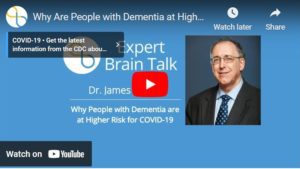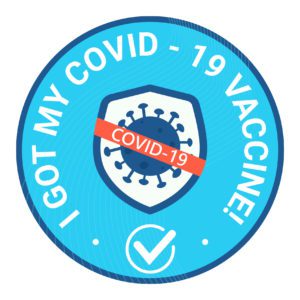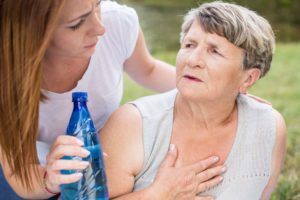Medical Topics
What to Check After an Aging Person Falls
Falls by an older person shouldn’t be taken lightly. Even if no injuries are apparent, and it seems the individual tripped and fell, it’s still important to be proactive about getting the proper medical assessment after a fall. Most doctors’ visits after a fall are to check resulting injuries, but more care is warranted. Falls…
Read MoreHow to Develop a Backup Medication Supply for Emergencies
Many seniors need to take multiple medications for chronic health issues. Often, missing even one dose of medicine can be very dangerous for the elderly, causing them to become sick or even end up in the hospital. Unfortunately, running out of timely medications could happen if an existing supply gets misplaced or contaminated or if…
Read MoreVideo Corner: Why are People with Dementia at Higher Risk for COVID-19?
During the COVID-19 pandemic, many caregivers noticed that those suffering from dementia were at a higher risk of contracting the disease. One reason they’re more vulnerable is because they’re less apt to take common sense, reasonable steps that are necessary to protect themselves after possible exposure, or to prevent themselves from even being exposed in…
Read MoreVideo Corner: The Impact of COVID-19 on Caregivers of Alzheimer’s Patients
A large number of Alzheimer’s patients are cared for by family members and spouses. During recent stay-at-home advisories during COVID-19, these caregivers have been under tremendous amounts of increased stress, with little opportunity for respite. Here are some tips for ways to alleviate some of that stress to avoid caregiver burnout.
Read MoreHow to Handle Dementia Accusations
The brain of a person struggling with dementia can begin to link facts and details in unusual ways. As the brain starts to change, a false-memory phenomenon can occur. This causes the individual to perceive reality differently than those around him or her and can lead to hurtful behavior toward caregivers. One common scenario experienced…
Read MoreHurtful Words and How Caregivers Can Cope
It’s no easy task to care for an individual suffering from Alzheimer’s or dementia. Still, difficulty can quickly escalate when that person starts using hurtful words to interact with you. It’s human nature to take rude or mean words personally and feel that the individual is consciously attacking you verbally; however, in the case of…
Read More6 Ways to Prevent Heat Stroke in Seniors
Summertime can be a fun and wonderful season to enjoy the outdoors – but it can also present dangers in the form of heat injuries such as heat stroke. Heat stroke is a condition caused by your body overheating, usually due to prolonged exposure to the sun or physical exertion in high temperatures. Because untreated…
Read MoreLiving Will vs. Health Care Proxy
Although most people realize they should have some advanced healthcare directive in place, there is often a lot of confusion about what type they need and why. First, it’s important to understand why advanced healthcare directives emerged. They were created in response to increasingly sophisticated medical technology. A century ago, before recent technological breakthroughs and…
Read MoreThe Latest News on COVID-19 Vaccines, Including Boosters and the Delta Variant
As the contagious and rapidly-spreading delta variant of COVID-19 continues to increase case numbers in the United States and across the world, the FDA is urging Americans to get vaccinated if they haven’t already. Currently, three vaccines are authorized and recommended in the United States to prevent COVID-19. While the CDC does not recommend one…
Read MoreBody Heat Regulation in the Elderly
July and August bring on what is known as the “dog days of summer” – body heat, hot, muggy, sunny days that can cause lethargy and exhaustion. However, extreme temperatures that make the rest of us seek out the nearest beach or pool can have much more dire consequences for older people due to their…
Read More









